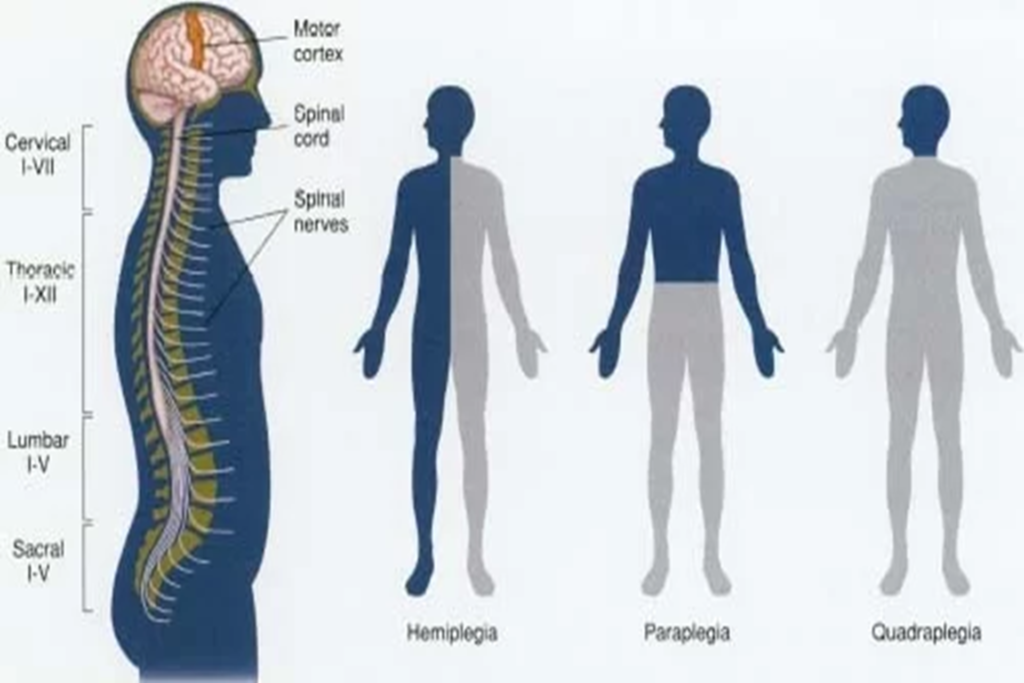
Overview:
Hemiplegia, quadriplegia, and hemiparesis are conditions that affect movement and sensation in the body. Hemiplegia refers to paralysis on one side of the body, while hemiparesis indicates partial weakness on one side. Quadriplegia, also known as tetraplegia, involves paralysis of all four limbs. These conditions are often the result of neurological damage, particularly to the brain or spinal cord, and can significantly impact daily functioning.
Causes:
The primary causes of hemiplegia, quadriplegia, and hemiparesis include stroke, traumatic brain injury, spinal cord injury, multiple sclerosis, brain tumors, or conditions like cerebral palsy. Hemiplegia and hemiparesis are often caused by damage to the motor areas of the brain, while quadriplegia is typically a result of spinal cord injury affecting the cervical spine.
Symptoms:
Symptoms vary based on the severity and location of the neurological damage but typically include muscle weakness, paralysis, loss of sensation, and difficulty with motor coordination. In hemiplegia, only one side of the body is affected, while hemiparesis involves partial weakness. Quadriplegia affects all four limbs, and individuals may also experience breathing difficulties, loss of bowel and bladder control, and impaired speech or swallowing.
Treatment:
Treatment for these conditions focuses on rehabilitation and managing symptoms. Physical therapy, occupational therapy, and speech therapy play key roles in improving movement, strength, and coordination. In some cases, surgical intervention may be necessary, particularly for spinal cord injuries. Medications may also be prescribed to manage pain or spasticity. The goal of treatment is to enhance quality of life and maximize independence.
Precautions:
Patients with hemiplegia, quadriplegia, or hemiparesis should avoid falls and injuries, as they may have limited mobility or sensation. Regular physical therapy and medical follow-up are crucial for maintaining function and preventing complications. Emotional and psychological support is also important as these conditions can significantly impact mental health.
Prevention:
Prevention involves managing risk factors such as controlling high blood pressure, preventing strokes, wearing protective gear to prevent traumatic injuries, and managing chronic conditions like diabetes. In cases of spinal cord injury, following safety measures to avoid accidents is essential.
For expert treatment and rehabilitation in hemiplegia, quadriplegia, and hemiparesis, visit the KDM Hospital in Lucknow. The hospital provides comprehensive facilities, including ambulance services, budget-friendly options, Ayushman card acceptance, and 24/7 doctor availability.
